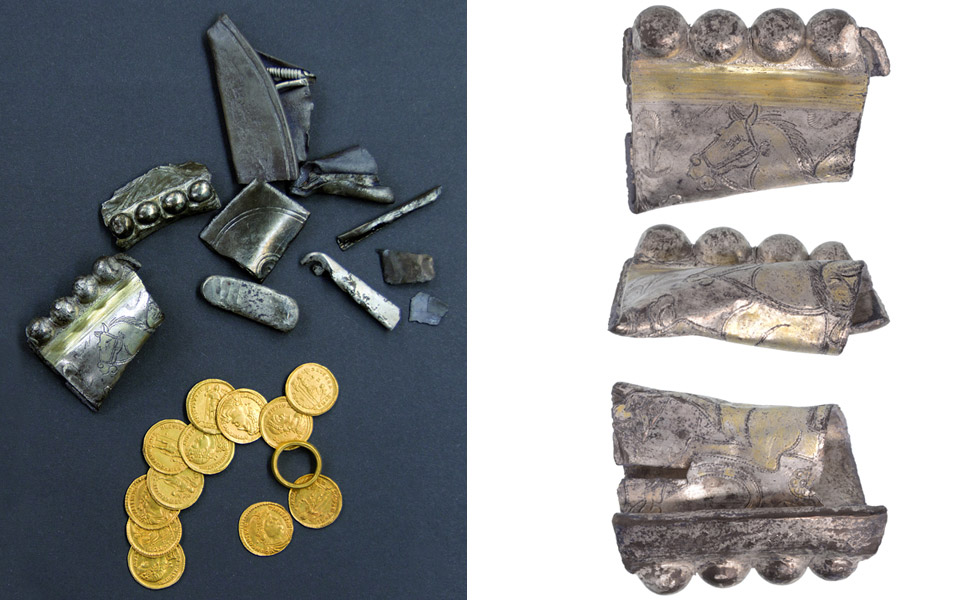| Online: | |
| Visits: | |
| Stories: |

| Story Views | |
| Now: | |
| Last Hour: | |
| Last 24 Hours: | |
| Total: | |
Are Gold & Silver Worthless When SHTF?
Roman Treasure Uncovered, Limburg
The recent discovery of a gold-and silver treasure in Echt, Limburg, is casting new light on the collapse of the Roman Empire in the Netherlands, around 411 AD.
This treasure, a combination of golden coins and chopped silver, is the first one found in the Netherlands from the time of Roman ruling. It points to the time of Roman decline in the area because the silver is cut into bits, which typifies how soldiers were paid in times of economic crisis.
This was announced by the Free University of Amsterdam (VU) in Venlo on Friday after archaeological research. The golden coins were partly made by Kaiser Konstantin III (407-411). They were buried ‘fresh off the press’, the VU reports. It’s possible that the treasure was buried after a defeat of the Romans.
The University posits that the silver shards are especially indicative of an economic and military crisis in the Late Roman Empire. The valuable silver plates were cut into shards to serve as a method of payment. Romans paid German warlords with these valuable plates to close an alliance with them and avoid future invasion. The German warlords subsequently cut these plates into bits and paid their soldiers with them.
Konstantin III tried to ward off a German invasion in the area between Maas and Rijn by flaunting the money, and thereby forming alliances with the German warlords. According to the archaeologists, the treasure found in Echt belonged to a German officer who quickly buried his winnings, when Konstantin III led a defeat in 411.
The Roman Era treasure found in Limburg.
Source: http://www.themodernsurvivalist.com/archives/3359




